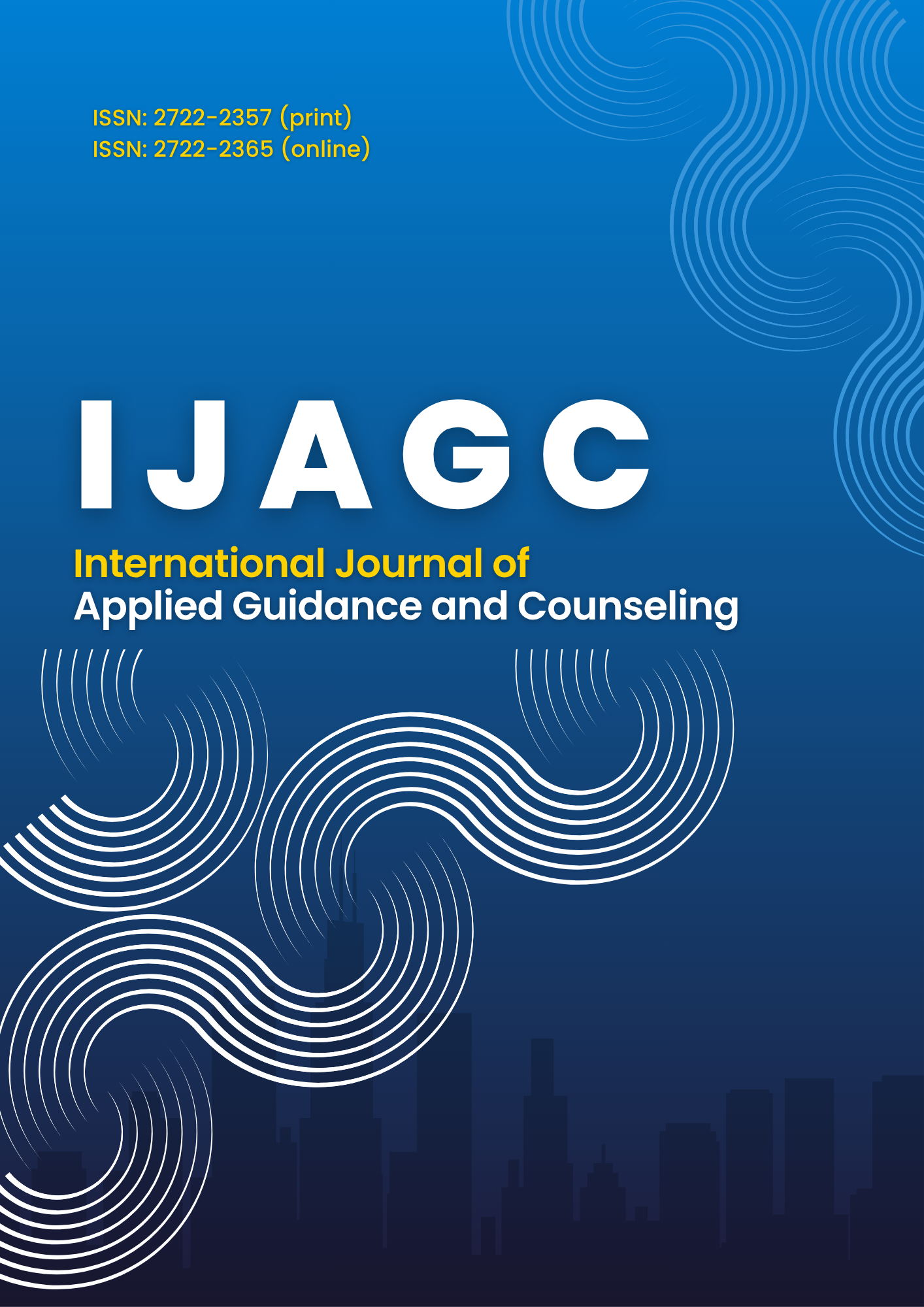Self-Compassion Overview in High School Students
DOI:
https://doi.org/10.26486/ijagc.v6i2.4602Abstract
Self-compassion is defined as a form of accepting oneself in one's condition, and it also includes incidents of failure, difficulties, or bad things experienced by individuals. To participants, self-compassion is a duty for high school-age individuals to develop in aspects of personal development, including measuring one's size in an organisation and providing guidance and counselling in schools. The purpose of the study. This is a known description of self-compassion participants studied at State Senior High School 2, Subang. The methods used are quantitative with a descriptive statistical approach. Data was collected using the Self-Compassion scale for 401 participants in the education class X at Senior High School 2 Subang. The study results conclude that as many as 55 participants educated their self-compassion in category low, 274 participants educated their self-compassion in category moderate, and 72 participants educated their self-compassion in category high.
Downloads
Published
Issue
Section
License
Copyright (c) 2025 M. Fiqri Syahril, Elwas Berdha Krismona, Nengsi Dahma Yanti, Santy Andrianie, Arifah Wulandari

This work is licensed under a Creative Commons Attribution-ShareAlike 4.0 International License.
Authors who publish with IJAGC: International Journal of Applied Guidance and Counseling agree to the following terms:
Authors retain copyright and grant the Insight right of first publication with the work simultaneously licensed under a Creative Commons Attribution License (CC BY-SA 4.0) that allows others to share (copy and redistribute the material in any medium or format) and adapt (remix, transform, and build upon the material) the work for any purpose, even commercially with an acknowledgement of the work's authorship and initial publication in Insight. Authors are able to enter into separate, additional contractual arrangements for the non-exclusive distribution of the journal's published version of the work (e.g., post it to an institutional repository or publish it in a book), with an acknowledgement of its initial publication in Insight.
Authors are permitted and encouraged to post their work online (e.g., in institutional repositories or on their website) prior to and during the submission process, as it can lead to productive exchanges, as well as earlier and greater citation of published work (See The Effect of Open Access).












